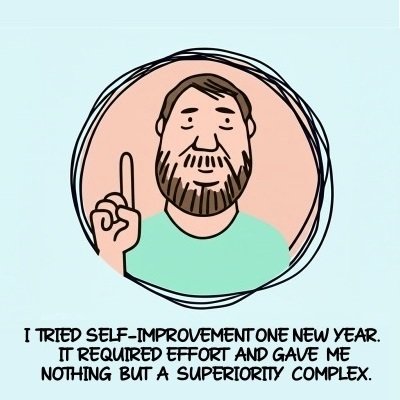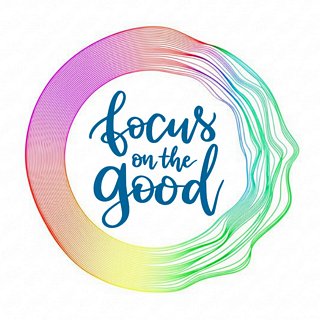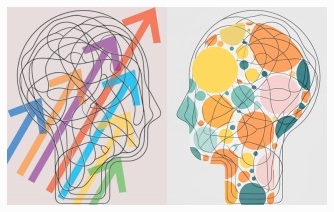 Few things feel more exhausting than the annual tradition of drafting New Year’s resolutions. It seems the world collectively decides that, after a month of indulgence, we must suddenly repent with a list of impossible goals. This year, I’m opting out.
Few things feel more exhausting than the annual tradition of drafting New Year’s resolutions. It seems the world collectively decides that, after a month of indulgence, we must suddenly repent with a list of impossible goals. This year, I’m opting out.
As the holiday decorations come down and the last bits of wrapping paper are shoved into the trash, we shift from celebration to self-discipline. December centers on joy and excess. January, by contrast, ushers in guilt, self-denial, and a touch too much self-righteousness.
Resolutions often serve as long, detailed inventories of our perceived shortcomings. The extra weight, the overflowing inbox, the unfinished books, the credit card bill staring us down—they all remind us that we should be thinner, richer, more productive, and more accomplished. Apparently, 2025 didn’t cut it. So now 2026 is the year we finally get our act together.
A few impulsive purchases or skipped workouts are not signs of failure. They are proof that we’re living. Still, resolutions twist these everyday moments into problems that need fixing, turning the new year into some sort of overdue bill.
By February, most resolutions are abandoned. Junk food bans crumble. Ambitious wake-up times slip back into snooze mode. Flipping the calendar doesn’t flip a switch in our minds. We are who we are—beautifully flawed, balancing indulgence and responsibility like everyone else.
Instead of another round of self-imposed suffering, we can try something refreshing. Let’s embrace where we are, imperfections included. If we must resolve to do something, let it be this: accept that we’ll never be perfectly polished, but we’ll always be wonderfully, unapologetically alive.
 Modern life tempts us toward simple ideals—peace, joy, freedom—but wisdom lies in reimagining these not as escapes from discomfort, but as quiet, sustained negotiations with the
Modern life tempts us toward simple ideals—peace, joy, freedom—but wisdom lies in reimagining these not as escapes from discomfort, but as quiet, sustained negotiations with the  Optimism’s useful—good for your mind, body, and well-being. But it’s not a cure-all.
Optimism’s useful—good for your mind, body, and well-being. But it’s not a cure-all. November 20 is
November 20 is  It’s a curious feature of our age that we still require, by law, ashtrays in the lavatories of commercial aircraft. Not because we’re nostalgic for the days when the skies were thick with the fug of unfiltered Marlboros, but because—despite decades of prohibition—someone, somewhere, will inevitably decide the rules
It’s a curious feature of our age that we still require, by law, ashtrays in the lavatories of commercial aircraft. Not because we’re nostalgic for the days when the skies were thick with the fug of unfiltered Marlboros, but because—despite decades of prohibition—someone, somewhere, will inevitably decide the rules .jpg)
 Life is not a cradle of comfort but a crucible of experience. To be conscious is to be vulnerable—to injury, to loss, to the slow erosion of certainty. Suffering is not a glitch in the system; it is the system. And yet, the modern mind, coddled by convenience and narcotized by distraction, recoils from this fact as if it were an indecency rather than a reality.
Life is not a cradle of comfort but a crucible of experience. To be conscious is to be vulnerable—to injury, to loss, to the slow erosion of certainty. Suffering is not a glitch in the system; it is the system. And yet, the modern mind, coddled by convenience and narcotized by distraction, recoils from this fact as if it were an indecency rather than a reality. A thing can feel bad and be right.
A thing can feel bad and be right. Mentorship once meant absorbing polished advice from someone with gray hair, a Rolodex thick with gatekeepers, and the power to open doors. Age conferred authority. Experience granted relevance—and access.
Mentorship once meant absorbing polished advice from someone with gray hair, a Rolodex thick with gatekeepers, and the power to open doors. Age conferred authority. Experience granted relevance—and access. The tendency to divide humanity into heroes and villains, saints and devils, is
The tendency to divide humanity into heroes and villains, saints and devils, is